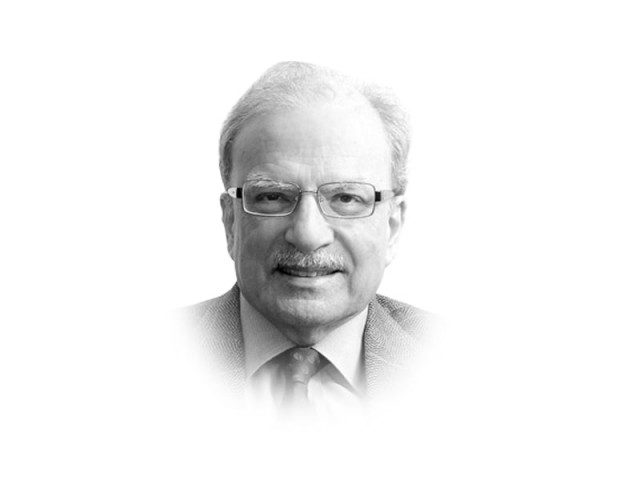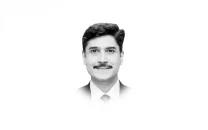Politics in the way of economics in South Asia
Politics is the reason for Pakistan’s long-lasting recession.

The writer is a former caretaker finance minister and served as vice-president at the World Bank
The main reason why the South Asian economies have become stalled is that they have run into political difficulties. Let us begin with India, not only the area’s largest economy but also a trendsetter in both politics and economics. For the Indians to reverse the recent growth trend which is pointing downwards, they need to find new drives that can take the economy forward. Those that delivered high rates of GDP increase were limited to relatively small segments of the country’s large population and to a few parts of the nation.
The country’s IT and modern health sectors, when combined with tourism, provided the resources for generating the momentum that drove forward the economy. New entrepreneurs with new ideas and with new global markets to tap rushed in when the reforms in the early 1990s pushed the state down from the commanding heights of the economy. The vacated space was quickly occupied by new and talented players. The contributions they made were celebrated by the American journalist Thomas Freidman in his bestselling book, The World is Flat.
However, unlike China’s growth spurt, the Indian move forward was not broad-based. India now has worsening income inequality, both personal and regional. This has created serious political problems. A country of India’s size needs to develop the sectors that could sustain growth by delivering its rewards to a larger proportion of the population and also to the country’s more backward regions. That needs political consensus for making the right public policy choices. That consensus is not there for the moment. There are enormous differences in the way the various parts of the political elite look at economic management.
For instance, the Gujarat leadership now vying for top positions in New Delhi would like the private sector to lead the way in all parts of the economy. For that to happen, the government must get out of the way. It should step in only when its assistance is needed by private enterprises. Such assistance could be provided in making it easier to acquire land to establish businesses and to remove the protection provided to workers. Laws on the books in both areas are the legacy of India’s socialist path. That such a strategy can work is demonstrated by the state leadership in making Gujarat one of the country’s more dynamic areas.
However, the leadership on the other side of the continent-sized country does not believe that the role of the state is the problem. Bengal, on the eastern side of the country, is governed by a leadership that strongly favours an active state. According to it, without the presence of such a state, the Indian economy cannot become ‘inclusive’. Without broadening the base of the economy and bringing into it the currently excluded people, sustainable growth is not possible.
Can these two very different points of view be brought into one politico-economic framework? For that to happen India will need strong leadership in New Delhi, one that has the confidence of the entire citizenry. Such a leadership is not in place at the moment and is not likely to emerge even after the elections of spring 2014. Good economic governance may need a fundamental restructuring of the political system.
Politics is also the reason for Pakistan’s long-lasting recession. The economy was hurt by a number of factors that were the consequence of the poor choices made by the political elite that governed for five years, from 2008 to 2013. Among these was poor quality of governance, the inability to deal with the rising tide of extremism and associated terrorism, and severe energy shortages. Judging by the results of the elections held on May 1, 2013, it appears that a strong mandate was given to the PML-N that now governs from both, Islamabad and Lahore. While the new leaders are well-engaged in trying to establish a viable system of accountability and easing the country’s financial problems, they still have to come up with a strategy to control domestic terrorism. The failure to do that will continue to hurt the economy since without the assurance of security, the community of investors will stay on the sidelines.
Could a national strategy be developed to address extremism or will that have to be left to the provincial and city governments? This is also a question about the structure of politics. In other words, South Asians may have to reflect on which way their political systems should go in order for the subcontinent to revive its economy.
Published in The Express Tribune, October 21st, 2013.
Like Opinion & Editorial on Facebook, follow @ETOpEd on Twitter to receive all updates on all our daily pieces.
















COMMENTS
Comments are moderated and generally will be posted if they are on-topic and not abusive.
For more information, please see our Comments FAQ